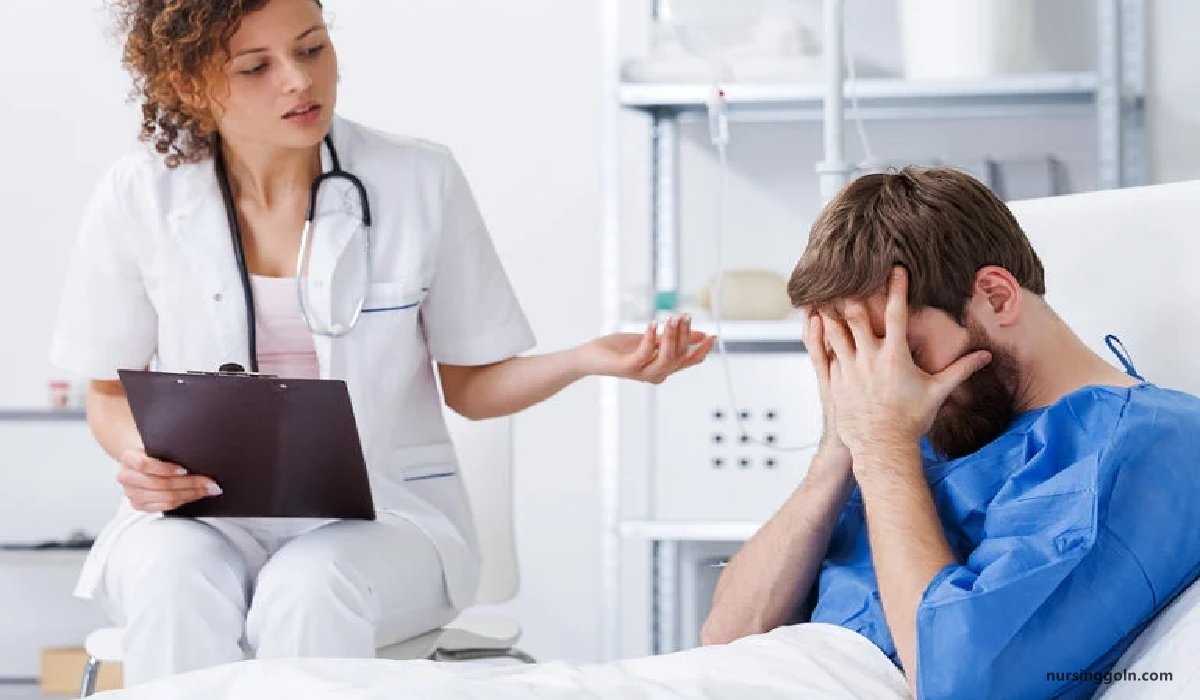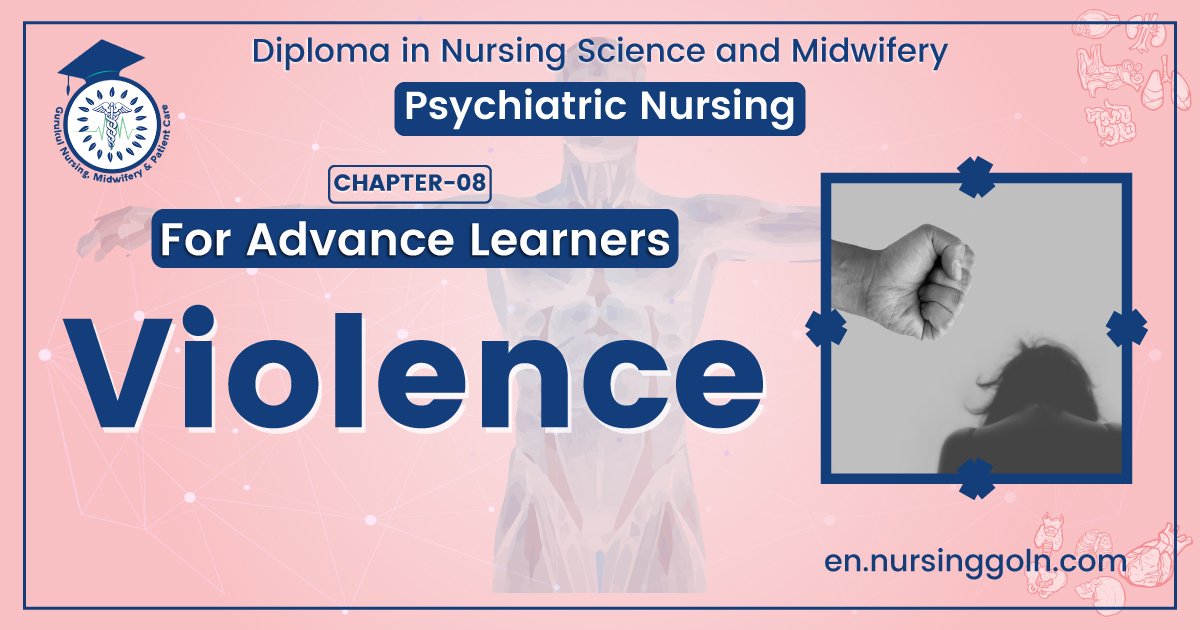Concept of Violence – This book covers the entire syllabus of “Psychiatric Nursing” prescribed by the Universities of Bangladesh- for Basic and diploma nursing students. We tried to accommodate the latest information and topics. This book is an examination-friendly setup according to the teachers’ lectures and examination questions.
At the end of the book previous university questions are given. We hope in touch with the book students’ knowledge will be upgraded and flourish. The unique way of presentation may make your reading of the book a pleasurable experience.

Concept of Violence
Violence is physical aggression inflicted by one person on another and may be done due to a wide range in psychiatric disorders.
[Ref: S Nambi/24/208]
Common mental disorders associated with violence:
1. Psychotic disorders:
➤ Schizophrenia (especially paranoid and catatonic)
➤ Mania
➤ Paranoid disorders (delusional disorders)
➤ Postpartum psychosis.
2. Organic mental disorders:
➤ Delirium
➤ Drug intoxication and withdrawal (alcohol and heroin)
3. Personality disorders:
➤ Antisocial personality disorders
➤ Paranoid personality disorders
4. Brain disorders:
➤ Seizure disorders (post-epileptic confusional state)
➤ Brain injury, encephalitis
➤ Mental retardation with behavior problem.
[ Ref: S Nambi/2/2091]

Medical conditions associated with violent behavior:
1. Neurological illnesses-seizure disorders, hepatic encephalopathy, cerebral infarcts, encephalitis, Wilson’s disease, Parkinson’s disease, intracranial bleeds
2. Endocrinopathies-hypothyroidism, Cushing’s syndrome, thyrotoxicosis, diabetic crisis
3. Metabolic disorders-hypoglycemia, hypoxia, electrolyte imbalance
4. Infections-AIDS, syphilis, tuberculosis
5. Vitamin deficiencies folic acid, pyridoxine, vitamin B12
6. Temperature disturbances hypothermia, hyperthermia, vitamin D
7. Poisoning
[Ref: Clinical Consult to Psychiatric Nursing/1″/711]
Questions to be asked to a violent patient:
Following are some important questions a nurse should ask a relative or the person accompanying an excited patient to have quick assessment:
1. Is the person a known mentally ill? If so what type and what treatment has he been taking?
2. Has he had a similar excitement earlier?
3. Is there any history of loss of consciousness, head injury epilepsy, alcoholism or drug addiction?
4. Is he involved in any criminal or antisocial activity?
[Ref: S Nambi/24/209]
Management of a violent and excited patient:
1. First protect yourself, do not approach alone, call for assistance to manage any situation. Do not close the door of the consulting room.
2. Leave physical restraint to the staff members who are trained for that.
- Do not challenge or confront a violent patient
- Always keep an eye of away through which you can escape
- Never turn your back on the patient
- Be sure that sufficient staff members are there to restrain the patient.
3. After physical restraint, approach the patient cautiously; do not be too brave or confident.
4. The most effective drugs are:
- Injection Chlorpromazine 100 mg IM
- Injection Haloperidol 10-20 mg IM/IV
- Injection Diazepam 10 mg IV (slowly).
5. If there is a history of head injury or brain infection avoid these drug;
6. Assess the nutritional state and, if there is dehydration, IV fluid are essential.
7. Attend to the external injury if required.
8. If psychiatric treatment is not needed you may call the police for help.
[Ref: S Nambi/2/209-2101]
Short note on stupor
Stupor is a condition where the patient is conscious, but there is non-responsiveness to the surroundings.
Cause
Stupor can occur in two mental disorders.
- Schizophrenia (especially catatonic)
- Depression.
Clinical features:
1. There will be total absence of self-care.
2. Neglecting physiological needs like food and fluid intake and
3. Almost total motor inactivity.
Nursing care:
1. Assess the nutritional states and hydration.
2. Give immediate M fluids and Ryles tube feeding, if necessary.
3. Plenty of vitamins are also essential as well as physiotherapy to facilitate movements and to prevent contractures.
4. Minimal dose of drugs (antipsychotics or antidepressants) are helpful to relieve basic problems.
[Ref: S Nambi/2/2101]
